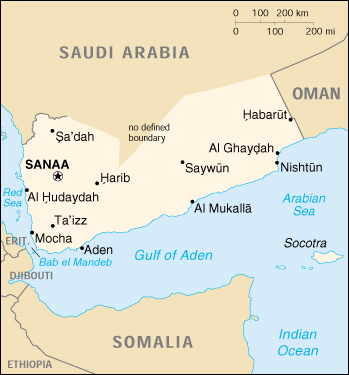The Obama administration has sent a platoon of US Marines into Yemen, reportedly on temporary deployment with the sole task of providing extra security for the American Embassy after it was stormed by protesters.
 “Because of the split in the army and the security forces, we allowed a limited number of Marine forces to protect the American embassy only,” Yemen’s Prime Minister Mohammed Basindwa’s media adviser Rajeh Bady told Reuters.
“Because of the split in the army and the security forces, we allowed a limited number of Marine forces to protect the American embassy only,” Yemen’s Prime Minister Mohammed Basindwa’s media adviser Rajeh Bady told Reuters.
“They are here temporarily for a limited amount of time and they will leave Yemen,” he said.
But Yemenis aren’t so sure the approximately 50 new US soldiers will only have a temporary presence. The US constantly deploys Marines to countries on an allegedly temporary basis, only to have an effectively open-ended mission there.
The Marine killed at the US consulate building last week, for example, had been there for months on a long-term mission to track weapons spread over the country following the collapse of the Gadhafi regime last year.
The attack on the US consulate in Libya, and protests at US embassies throughout the Arab world, including Yemen, occurred following a YouTube video gone viral depicting crude and insulting images of the Prophet Muhammad. But sending US Marines in response to these uprisings may be exactly the wrong thing to do.
The violent storming of the US Embassy in Yemen was “not solely a response to the controversial film, which few Yemenis—including those taking part in the demonstrations—have seen,” writes Adam Baron in The Nation. “Rather, the film struck a nerve in Yemen because of long-simmering resentment of American policy.”
“Specifically,” Baron continues, “Yemenis resent what they characterize as the United States’ persistent meddling in Yemen’s internal affairs,” with regard to propping up a brutal dictatorship and constantly bombing Yemen via drones, which often kills civilians.


